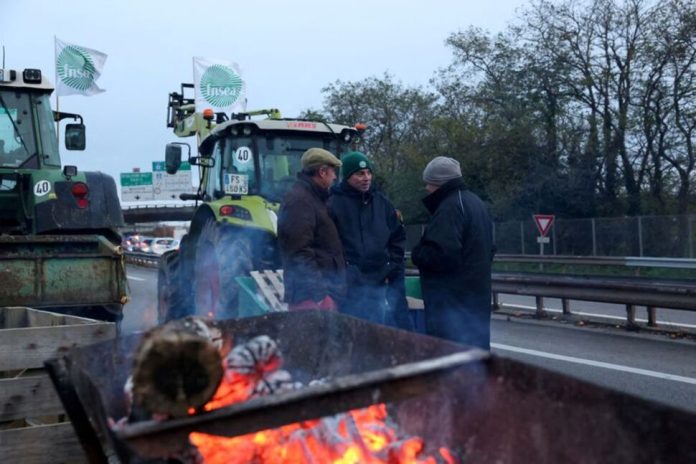The Spanish government defends the agreement between the European Union and Mercosur on agriculture and livestock, unlike other countries such as France or Germany. This has provoked the anger of Spanish farmers, who do not rule out the possibility of organising protests.
On June 28, 2019, an agreement was reached to open trade between the 27 EU member states and the four founding members of the South American bloc – Argentina, Brazil, Paraguay and Uruguay.
The deal is designed to create one of the world’s largest free trade zones, covering 750 million people and about a fifth of the global economy. Minister Luis Planas said in Brussels on Monday:
“I think that there is a certain mythology surrounding Mercosur that does not seem to me to match with the reality of what the Mercosur agreement is, or the moment in which we are living.”
Planas added that in today’s complex geopolitical context, Europe needs this type of agreement. He also asked the Spanish agricultural sector:
“Is the European Union interested in isolating itself right now? Or are you interested in expanding the network of our trade agreements with third countries to maintain our economic and commercial influence?”
“Unfair” EU-Mercosur pact
Euronews spoke to several farmers and the country’s largest agricultural associations. They are all opposed to the EU-Mercosur pact, which they consider “unfair” because producers from countries in the agreement are not subject to the same strict rules as in Europe. This prevents competition on a level playing field, they said. Cipri Guillén, spokesperson for the Arganda Wine Co-operative, told Euronews:
“In these countries where you’re expected to source certain raw materials, these standards don’t exist, it’s easier for them to produce and handle. Furthermore, it is inconceivable that the European Union, which was created to protect its member countries, is letting us work at a disadvantage and in unfair competition with third countries.”
After hearing Luis Planas’ statement in Brussels, he said that “if the minister were a farmer, he would be on the same side as his French and German colleagues,” referring to the critical stance taken by these countries. Guillén lamented:
“They are demanding that we comply with some things that are becoming more difficult every day and that make our products more expensive. They are abandoning European livestock.”
And now Spanish farmers, like him, do not rule out the possibility of organising protests on this issue.
Against European targets
Andoni García, a member of the executive board of the Coordinator of Organisations of Farmers and Livestock Breeders (COAG), is convinced that the Mercosur agreement will have “an extremely negative impact that will promote more industrialised models of agriculture, which is completely and totally against the objectives of the Green Deal and the farm-to-table approach.”
The meeting he attended on Tuesday is irrelevant because, he said, “the Ministry of Agriculture has never called special meetings with the agricultural sector to discuss Mercosur.”
Europe against Mercosur
About 100 demonstrators gathered outside the EU headquarters in Brussels on Monday. One tractor carried a banner reading “STOP EU-Mercosur” and placards called for “fair prices now.” One action included a mannequin with a sign reading “Killed by European politicians.”
Edu J. Nualart, a Spanish farmer working in the Netherlands, said:
“For decades we have been fighting against free trade agreements that put competition above fair prices for farmers.”
French farmers held mass protests on Monday and Tuesday, which coincided with the G20 summit in Rio de Janeiro. Arnaud Rousseau, head of France’s largest farmers’ union, FNSEA, said signing the agreement would be a disaster for European and French agriculture because of the difference in production standards.
Implications for agriculture
Farmers’ organisations predict a significant increase in imports: 99,000 tonnes of beef, 190,000 tonnes of sugar and 180,000 tonnes of poultry meat. This, critics say, jeopardises fair trade and the future of millions of producers.
Although French farmers have already launched protests, such as unloading manure in Chaumont, there are no plans to block the motorway this time. But the growing discontent highlights the difficulty of balancing trade liberalisation with the interests of local agriculture.
